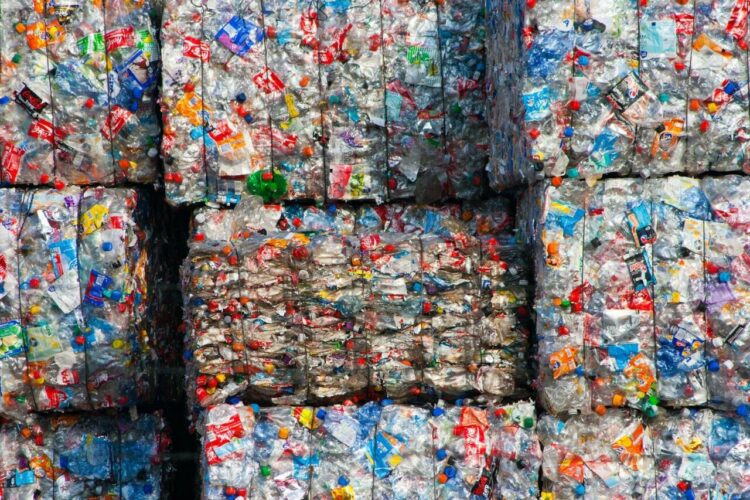The Yogi Adityanath Government has made the decision to build plastic processing parks in the state of Uttar Pradesh. One such park will be constructed under the Yamuna Motorway Industrial Development Authority (YEIDA).
The YEIDA board has approved the proposal for the establishment of a plastic park, and the planning department is preparing the park’s layout, as per the official press release. It stated that after approval, work on the project would begin and that the establishment of industries would proceed more quickly.
Notably, the Yogi Government intends to establish a plastic park along the lines of the UP medical device park, toy park, textile park, leather park, and electronic park.
In the plastic park, facilities for processing, manufacturing, and other related technologies of plastic products will be built, meeting the demands for plastic not only in Uttar Pradesh but also in the rest of the nation and the world. The officer related to this project said, “UP’s plastic park is essential to attend to the local needs which presently is being met through import. Once the market here saturates, UP can also become a global supplier”.
The YEIDA will facilitate the setting up of hundreds of plastic containers over a 100-acre area, as per the reports. The plastic processing park will be located in sector 10 of YEDIA. In order to conduct research and recycle plastics in this park, the Central Institute of Plastics Engineering and Technology (CIPET) is also prepared to build a testing lab on 5 acres of land.
On the other hand, Gorakhpur will also see the establishment of a plastic processing park, which is expected to include more than 100 plastic units.
According to the press release, the All India Plastic Industries Association has previously made a recommendation in this regard. More than 20 investors have made investment proposals for the park. In the future, this park will see various plastic firms establishing their plastic facilities in the area. It will create employment prospects for young people in the area.
According to estimates from the association, Uttar Pradesh is also one of the largest plastic-consuming state in India. The state houses over 10000 plastic manufacturing companies.
As per Director General Deepak Balani of the All India Plastic Industries Association, “The per capita plastic consumption in India and the globe is about 15 kg and 36 kg, respectively. In that sense, we are not even 50 per cent of the global average. This also amplifies the potential for growth to the plastic industry in India. The same holds true for UP where a plastic park has been planned by the government”.
Balani then mentioned the importance of plastic and its role in Covid-19, “Everyone has seen the contribution of plastic during the Covid-19 pandemic. Plastic is used in many products, including areas such as healthcare, pharma, food packaging, protective equipment, and PPE kits, among others. In a way, plastic has saved millions of lives. Apart from this, plastic is also widely used in packaging, infrastructure, and pipes used in buildings”.
Importance & Advantages
Efficient Waste Management: Plastic processing parks provide a centralized location for the collection, sorting, recycling, and processing of plastic waste. This enables efficient waste management practices, ensuring that plastic waste is properly handled, segregated, and recycled or disposed of responsibly.
Resource Conservation: Plastic processing parks promote the recycling and reuse of plastic materials. By setting up facilities for plastic recycling, these parks help conserve valuable resources by reducing the need for virgin plastic production. Recycling plastic waste also reduces energy consumption and greenhouse gas emissions associated with the production of new plastics.
Employment Generation: The establishment of plastic processing parks creates employment opportunities at various stages of the plastic waste management process. These parks require a skilled workforce for collection, sorting, recycling, processing, and manufacturing activities, leading to job creation and economic development in the surrounding areas.
Circular Economy Promotion: Plastic processing parks contribute to the development of a circular economy by closing the loop on plastic waste. Instead of disposing of plastic waste in landfills or incinerating it, these parks facilitate the transformation of plastic waste into raw materials or finished products, promoting a sustainable and circular use of resources.
Pollution Reduction: One of the significant advantages of plastic processing parks is the reduction of plastic pollution. By processing and recycling plastic waste, these parks help prevent plastic from ending up in landfills, oceans, and other natural habitats, thereby mitigating the environmental impacts associated with plastic pollution.
Technology and Innovation Hub: Establishing plastic processing parks encourages the development and adoption of advanced technologies and innovative solutions for plastic waste management. These parks serve as innovation hubs where research and development activities can take place, leading to the discovery of new recycling techniques and eco-friendly alternatives to conventional plastics.
Public Health and Safety: Proper management of plastic waste through processing parks reduces the risks associated with plastic pollution, such as contamination of soil and water sources. By preventing plastic waste from accumulating in the environment, these parks contribute to public health and safety, ensuring cleaner and healthier living conditions for communities.



















Comments